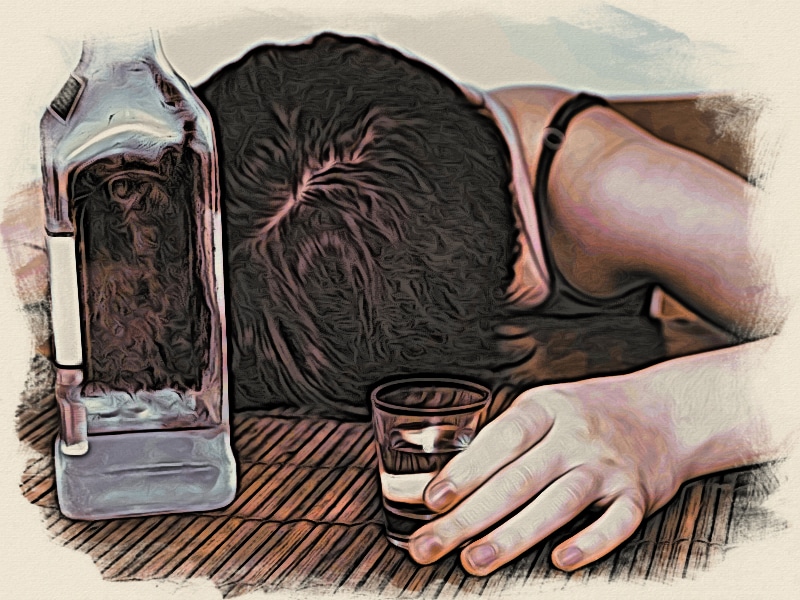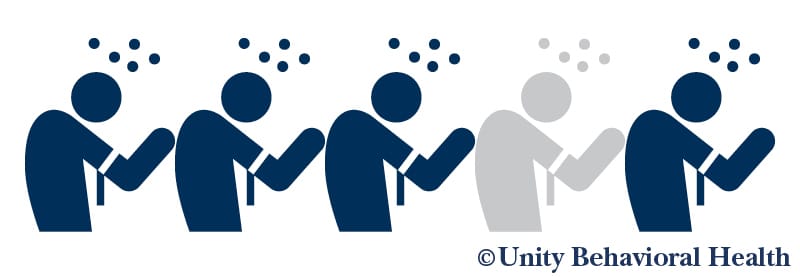Few names are more synonymous with U.S. soccer than Abby Wambach. Known both nationally and internationally, Wambach is one of the most accomplished soccer players of all time. Her career includes two Olympic gold medals, a Women’s World Cup championship and 184 goals – the most of any American male or female soccer player in history. Little did we know that her career also included struggles with painkiller addiction and alcoholism.
The Abby Wambach Few Knew
Following her retirement from the national soccer team in December 2015, Wambach, 36, began a career as a commentator and appeared to be starting the newest chapter of her life. Then on April 3, 2016, Wambach was arrested for driving under the influence (DUI), and the world got a different glimpse of the All-American women’s soccer hero.[1] It was the first in a series of revelations about Wambach.

In an interview with The New York Times and in her new memoir “Forward,” (released in mid-September 2016) Wambach opened up about her struggles with painkiller addiction and alcoholism during her playing career.
“I was doing all of these speeches, I was supposed to be inspiring people – inspiring people! – and late at night, in my hotel room, I was drinking myself to sleep. It just piled up and perpetuated the addiction even more. I was just self-medicating myself through my problems, through my divorce, through moving out of my house,” she said in her interview with The New York Times.[2]
Wambach’s Hidden Demons
For over 15 years, Wambach has served as one of the faces of national and international soccer. In 2012, she became the first American woman to be named the FIFA World Player of the Year in a decade.[3] In 2015, she was named one of the 100 most influential people in the world by Time magazine.[4] But as accomplished and well known as she was throughout the world, there was clearly another side to her that very few people knew of.
Had her fateful DUI in April not happened, we may not have ever known anything about her struggles with substance abuse. The soccer star admitted that the public shaming of having her mug shot plastered all over the Internet was the wakeup call she needed. She had been living a double life and was hiding from the truth.

“I was stubborn and I was in denial. I didn’t want to face the truth,” Wambach said to the Associated Press. “Not only was I hiding this secret from the world for so long, so were the people I loved – they loved me so fiercely they wanted to protect me as much as possible, almost from myself. Sarah [Wambach’s wife] was definitely one of my saving graces because she was one of the first people in my life who made me aware of the problems that I was having. And this was years ago. This isn’t something that just snuck on me when I retired from soccer. This is something I’ve been dealing with for years.”[5]
According to Wambach, her drug abuse began with prescription painkillers she was taking for medical reasons. Her use then spiraled into abuse and included binge drinking vodka, taking cocaine and abusing drugs like Vicodin, Ambien and Adderall.[6] She says she has been sober since her DUI arrest.
Same Story, Different Athlete
For some, it may be difficult to understand why a person like Wambach, who seemingly has everything a person could want, would need to escape through abuse of drugs and alcohol. If fame and fortune were all that a person needed to avoid falling into substance abuse and addiction, this story would seem a lot less common. Unfortunately, Wambach is not the first, and she won’t be the last famous athlete who develops an addiction.
Behind all of the accolades, awards, championships, endorsements and money is a real person who has to deal with real life pressures, in addition to maintaining a public persona. Wambach talked about her life struggles as one of the main reasons why she kept going down the wrong path.
“In the end, when things spun out of control, I was nearing the end of my career; I was struggling in my marriage — I’m divorced now. I was having an existential crisis. I didn’t know what I would be without soccer as my main identity. I started to use more to counterbalance the pain I was feeling of not knowing how to deal with those emotions. I was out of control,” she said in The New York Times.[2]
Athletes face an enormous amount of pressure to perform at the highest level and on the biggest stages, while also working to keep their bodies healthy and pain free. Many struggle with painkiller addiction as a result. The fact that Wambach’s journey to addiction began with prescription painkillers is not surprising. Opioids have fueled our nation’s most recent drug epidemic, which just saw a record amount of overdose deaths in 2014. Of the 21.5 million Americans who had an addiction in 2014, 1.9 million had a substance use disorder involving prescription pain relievers and 586,000 were addicted to heroin.[7]
The Growing Prescription Painkiller Addiction Problem:
- There were 47,055 drug overdose deaths in 2014. Of those, 18,893 were related to prescription painkillers and 10,574 involved heroin[8]
- In 2012, 259 million prescriptions were written for opioids, enough to give every American adult his or her own bottle[9]
- Four-out-of-five heroin users started off misusing prescription opioids[10]

Special Situations Call for Specialized Treatment
One of the biggest problems with the current standards for addiction care in America is the one-size-fits-all approach used by many facilities and practitioners. Just as every person is different, every addiction is different as well. This goes for painkiller addiction, alcoholism or any other type of addiction. What works for one person may not work for another. This is particularly relevant when discussing treatment for professional athletes and celebrities, who face unique challenges and circumstances.
References:
- https://www.espn.com/espnw/sports/article/15124052/retired-soccer-star-abby-wambach-arrested-dui-charge-portland
- https://www.nytimes.com/2016/10/11/sports/soccer/abby-wambach-addiction-alcohol-painkillers.html?_r=0
- https://www.topendsports.com/sport/soccer/list-player-of-the-year-women.htm
- https://time.com/3823298/abby-wambach-2015-time-100/
- https://bigstory.ap.org/article/96933379e73445c4acf8f41594f31fab/abby-wambach-i-abused-alcohol-prescription-drugs-years
- https://nesn.com/2016/09/abby-wambach-reveals-she-played-soccer-through-alcoholism-drug-addiction/
- https://www.asam.org/docs/default-source/advocacy/opioid-addiction-disease-facts-figures.pdf
- https://www.samhsa.gov/data/sites/default/files/NSDUH-FRR1-2014/NSDUH-FRR1-2014.pdf
- https://www.cdc.gov/vitalsigns/opioid-prescribing/
- Jones CM. Heroin use and heroin use risk behaviors among nonmedical users of prescription opioid pain relievers – United States, 2002-2004 and 2008-2010. Drug Alcohol Depend. 2013 Sep









